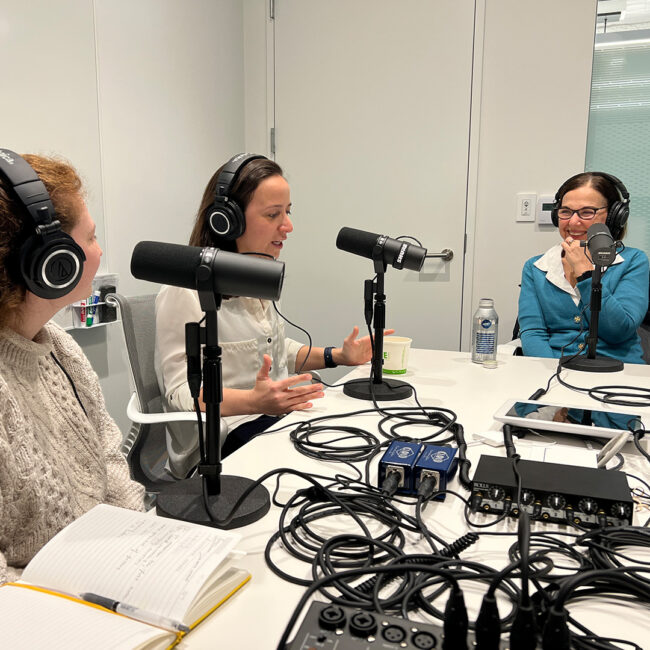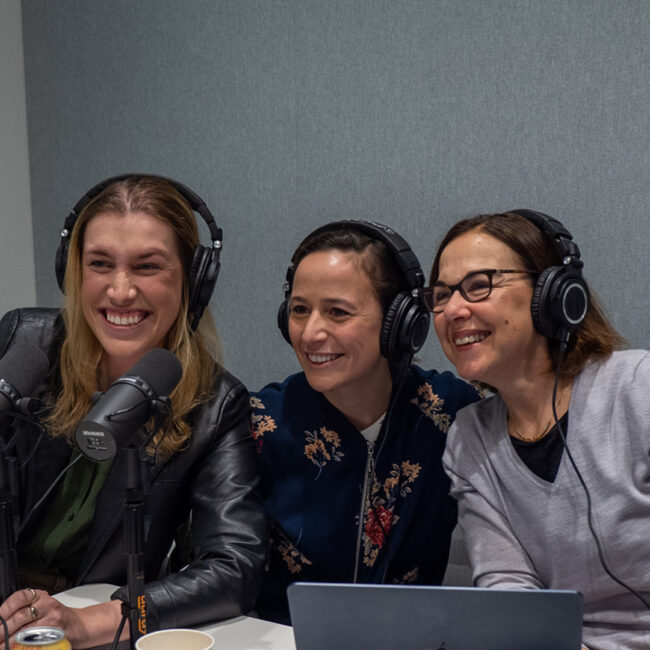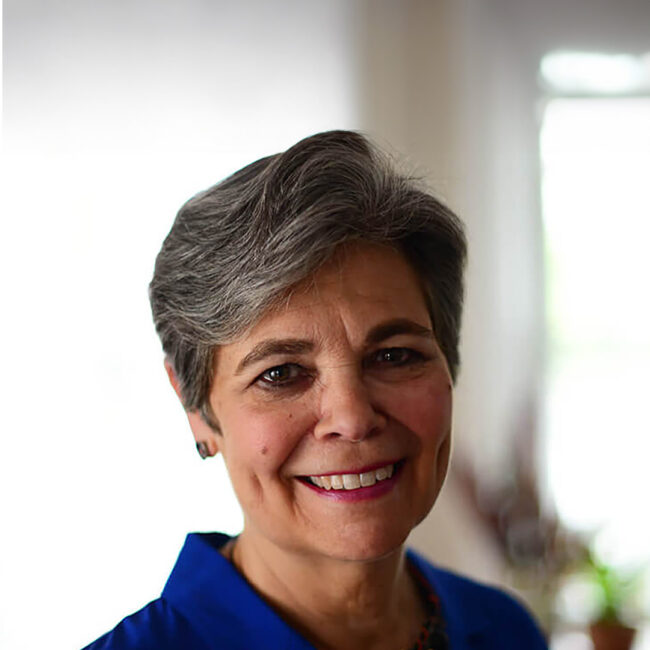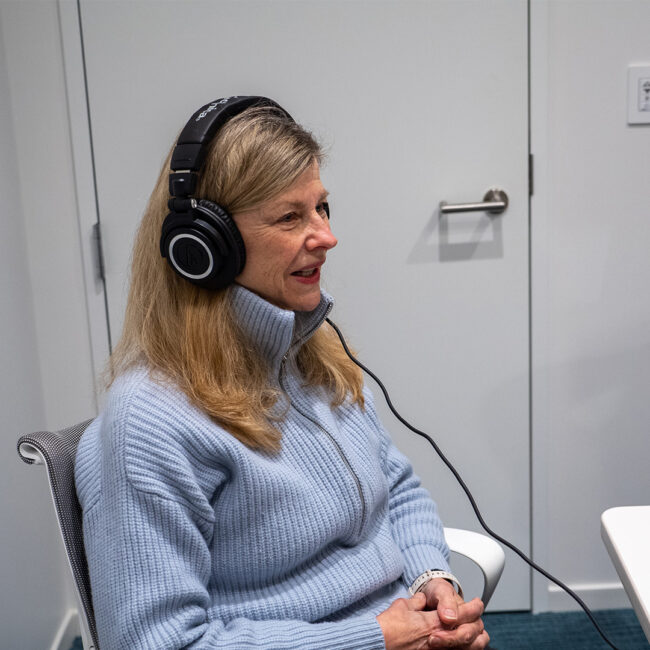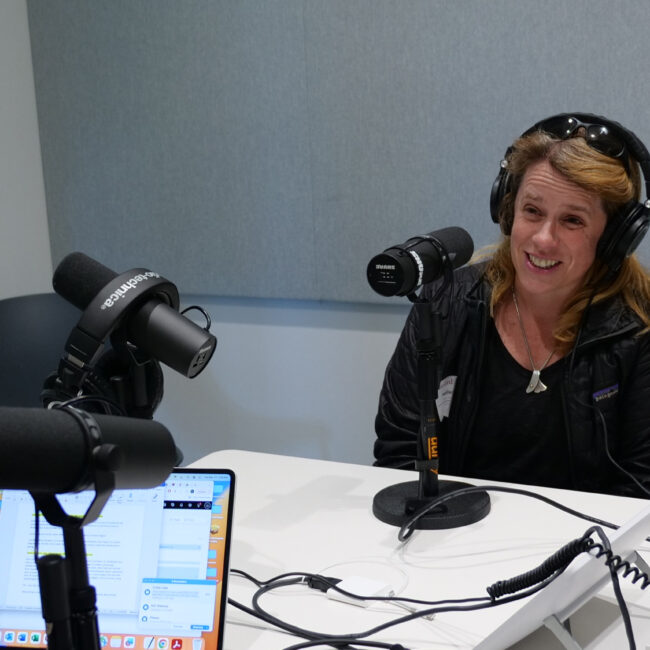
From Cancer Survivor to Genetic Counselor: A Conversation with Melissa Mills
Listen on:
Episode Transcript:
Lidia Schapira:
Welcome to Health After Cancer, a podcast for cancer survivors. I'm Lidia Schapira. I'm a medical oncologist at Stanford, and your host for this program. With me today in the studio is Melissa Mills. Melissa is a cancer survivor with a remarkable story, and she's a genetic counselor at Lucile Packard Children's Hospital here at Stanford. Melissa, welcome to our show.
Melissa Mills:
Thank you so much for having me today. It's really such a privilege to be here and wonderful to see you again.
Lidia Schapira:
Let's start by having you tell our listeners a little bit about your cancer story, which is pretty amazing.
Melissa Mills:
It started pretty early for me, although we didn't know it. So I was diagnosed at 11 months old. I was my parents' first child, and they took a lot of photos of me and they said, "Wow, one eye kind of has this red eye reflex, and the other one is really white and bright," and eventually it creeped up enough and got brighter. And so they showed the doctor who lived across the street, and he took one look at the photograph and said, "I know a guy in Boston. I'm going to make a call, you're going to go tomorrow." And my parents were like, "What?" I was their first child. They had no idea what this was. So I went to an ophthalmologist in Boston and my left eye was removed 48 hours later.
So I was treated at Mass Eye and Ear and then my parents had to learn about something called retinoblastoma. No one else in my family had ever had that, but... Yeah, that's where my story began, and it's played such a big role in who I am today. It's such an interesting thing to think about of yet what my life wouldn't be like without retinoblastoma, but that's maybe for later in our conversation. So basically they had to remove my eye to make sure the cancer didn't go down my optic nerve, and then they checked my right eye, which I am using currently to look at you to see your smile, and they found multiple tumors in that eye as well. We found out later that makes a difference.
That's called bilateral retinoblastoma, meaning I had the kinds that was more dangerous, so the kind that could keep coming back. That was just a big deal. Even just in 1976, having cancer, it was the C word back then. My parents lost friends. They were afraid it might be catching. People just didn't understand. My parents were told that if they had any more children, they would also have cancer. And then my parents made new friends, ones that would bring them a casserole and would listen and would be there for them. And those friends are still there for my mom to this day, which is amazing. So my life kind of went on with me learning how to walk with monocular vision, bumping into things and figuring it out, and then having to go to Boston every week and then eventually every month.
They did find some tumors in my right eye, and I got super lucky that they used something called cryotherapy, which was brand new. And for our listeners, that's when they use a freezing probe, and so... It's not very nice image to think about putting something freezy needle in your eye, but it worked. It froze out my tumors. I think there were two, and I have a little scar on the back of my retina, and then it never came back, but we had to make sure. So we went to exams on our anesthesia. And so for me, I just had to kind of survive. So I went and I did everything and I was the good little cancer patient. My eye doctor said I was the one who didn't scream, who just said, "What do we need to do? How do we get through this?" And my first sentence was, "Don't cry, mommy." It was hard.
It was hard on my parents. They struggled. My dad worked really hard, took a job that he didn't really want so we would have health insurance and worked constantly, some to pay the bills and some to avoid those big feelings that come up when you can't save your child from the C word, and it really was. I mean, to this day, he looks at me and he sees that little child that he couldn't save. And that's really, really hard. Oh, I'm already crying, and how many minutes are we in? Oh my goodness. So yeah. I think the one other kind of piece that I would love to put into the origin story, if that's what this is that I had to keep going and keep checking. And I got so lucky because we checked and we checked and it became, first it was every week and then every month, and then I turned five.
My eye doctor, he showed up at my front door, unexpected, unannounced, and he was standing there with a teddy bear, Fluffy, I still have Fluffy. I have a special dress for Fluffy and Fluffy will stay with me forever. He came and he said, "You're going to be okay." And it meant so much to me, my family, my parents. And I don't know if he goes to everybody's house, but Dr. David S Walton, I will thank you till the day I die for how well you cared for me and how he saved my life. And so from then on, I was fine, so to speak. But then that's what we're here to talk about, right? Is it's not just, you just put a bow on it and put cancer on a shelf and you're all good.
Lidia Schapira:
That's a remarkable story every time I hear it, Melissa. I imagine that your family just never got around to really talking about it. Am I right?
Melissa Mills:
Yeah. Talking about it was hard. My dad was a very strong police officer type, and the only time I would see him cry was when he talked about me and my cancer diagnosis and surviving that. And that is a little bit hard as a child to know that you didn't do anything wrong, but yet you messed up their lives in a lot of ways. And to figure that out to say, "Don't cry, mommy." I knew that these big things were happening and they were happening because of me. And back then there wasn't the same child life stuff. There was no make a wish, there was no support for my parents, most importantly, and then for me, this little kid going through all this with no context. We knew a few other families whose kids had retinoblastoma and they all ended up blind. And there's a survivor's guilt there for both me and my parents.
So we didn't really stay friends with those families. And nowadays, I would be able to go to a camp. There's Camp Sunshine in Maine that here is amazing. And people have realized that those supports, those social supports are really... The social emotional piece is really important to really surviving cancer. I still think about it to this day of how it might've been different and how I want it to be different for other folks, and that's why I want to talk about it. People didn't talk about cancer in the seventies, and we started to and it started to be something that people realize that we shouldn't just hide away. And I think the more we talk about it, the more we can support each other through these hard things that happen in life. I mean cancer and other, there's so many different things out there. As you live your life, you start to realize that.
Lidia Schapira:
Yeah. We hear from other cancer survivors and especially those who were very young when they were treated, is that connecting with others and finding a peer group can sometimes also help to sort of process what was a very difficult experience. And I'm curious if you can share with us a little bit about how this evolved as you grew. When did you start to go back and think about your cancer history and look for information and try to answer some of the why's and why me?
Melissa Mills:
Yeah. It really came to a head for me in college. So I talked to people about... It was a big part of who I am. It was part of the essay that got me into most of my college acceptances. So I did a lot of processing when I was applying to college and thinking about who am I and how much of who I became was because of my cancer. And so, I was asked to do a talk for a friend. He was leading a bioethics section at Stanford, and he said, "Oh, it'd be really great if you could talk about yourself and hereditary cancer," because I'd always been told, "You should probably not have children." That was kind of the narrative that I received. "Well, they would have cancer too, so you need to think hard about that, Melissa." And like, "Oh, but you're not there yet anyway, so it's fine."
I went to kind of figure things out to talk intelligently to a bunch of Stanford students who were somewhat my peers. And as I dug deeper, I found out more. I learned about, oh, I have a mutation. Cancer was in both of my eyes. And so I kind of found out about all this in a vacuum by myself just trying to piece together information. That's when I really said, "Oh my goodness, this is going to affect me for the rest of my life." It didn't hit me until that moment. And I had this big emotional response as a senior in college. I had a boyfriend at the time, and I told him, "Hey, I've done all this research. This is thing we need to talk about." And I also found out about something called pre-implantation genetic diagnosis at that time, so people were working on a way to not pass on a genetic mutation like mine that caused the childhood cancer, the retinoblastoma.
And this gave me a little bit of hope because of that narrative of saying, oh, you probably just shouldn't have children. I went, "Wait, maybe science, maybe we can be smart about this and I can do this." So that was huge. And I was talking to my boyfriend at the time and oh wow, it was too heavy for him, thinking about children, that's down the line ways. And then thinking about doing special science experiments to have children. That was a lot. He and I ended up breaking up and I realized, wow, the person who's going to end up with me is going to have to be kind of a person that can deal with all this. I'm not just Melissa, I'm kind of cancer Melissa. And so I think I've told you in the past that I would disclose my survivorship on date two.
You have your first date. Okay, do we like each other? Do we want to do the second date? And when second date was like, "I got to tell you something about me," and see how they react. And some folks would stick around and some not so much. I would have to be strong and be like, "Okay, well if that's too much for this person, then I'm too much for that person, and that's okay. There's going to be someone out there for me someday." And it turned out there was, but it feels like you're wearing this backpack with these bricks in it, and you're kind of going along trying to live your life, but you feel like you've got this heaviness that you're carrying with you, and you just want to lighten that backpack a little bit if you can.
And you're right, talking to other survivors and feeling like you're not alone and you're not crazy and you're not weird. I mean, as a teenager, it's so hard feeling different. I think that's a universal that we all as humans want to fit in. We want to have people that know us and understand us and accept us for who we are. And I felt like with my cancer and the hereditariness. It's one thing to survive cancer, it's another thing to have to tell the world, "And then my kids might have it. And then to find out in my research that I had secondary cancer risks, I didn't even touch on that yet. That was heavy too.
So I added a bunch of bricks like, "I could get cancer again? Haven't I been through enough? Why?" There's so many questions and it's so easy to spiral. And I did at times. I mean, I was depressed at times because I was really sad and heavy about the whole thing, that backpack. I had to find ways to lighten that. And there's therapy and there's exercise and all these different things. The ways of coping are so important to figure those out. And it's easier when you have folks that are there that are smart and can help you navigate this stuff. And I'm so glad that folks have figured out that we need that for cancer survivors.
Lidia Schapira:
Let me ask you to draw the line that connects your experience with your vocation and your choice then to become a genetic counselor. Tell us a little bit about what you do and how you got there.
Melissa Mills:
Oh, that's a great question. It's so interesting how pieces fall into place sometimes. My brother and his wife let me know that they were pregnant, and I was overjoyed and panicked all in the same breath. So I said, "Wait, I never found out about my cancer and could he be a carrier and all these things, I got to take care of this." And so I ran out to see a genetic counselor because I said... My friend said, "Oh yeah, you can find this out. You just have to go to this, Stanford has genetic counselors. You can go find this out." I said, okay. So I went to the Stanford Cancer Center, and I saw an amazing person named Kerry Kingham, who is still my favorite person. She taught me about cancer genetics, and she taught me about my genetics, and she helped me through the process of finding my mutation.
And we were able to figure out that I was the first one. It's called de novo. I was the first one in my family, and I was determined to be the last one in my family given my lived experience. And so I went through this whole process. So I met with her. She taught me all about [inaudible], like I said. And she helped me kind of adjust to this and to understand my genetics. And I said, "Wow, that's what I needed back when I was in college. That's what I needed years and years ago to help me understand." And this is a big part of who I am and that educational piece and helping me understand the test that I was going to have, that meant so much to me. And at the time, I was working as an environmental consultant, and I loved explaining data to people.
Most of the scientists were like, "Oh, I have to have a meeting." And I was like, "Yay, I get to be in a meeting. I get to explain things to people. This is great." And so I realized that I could leverage my lived experience and leverage my joy in talking and explaining things to people and getting to know people. I could use it to help people just like myself. And as I've gone on, I've realized there's just so many people like me who don't completely understand, and especially childhood cancer survivors, there are people out there that don't even know that they had retinoblastoma. They were never told, and they were never given that powerful piece of their lived experience and their history.
And it's to me that it's a huge gift to be able to have that knowledge about what you have and be able to make informed choices about how you want to lead your life and how to keep yourself safe and how to take care of your children and things like that. So to me, I said, "I got to do this." And so I went back to school and I became a genetic counselor, and I am still a part-time genetic counselor to this day. So I'm really so grateful for the care that I received and for the ability to use my strengths now to help others just like me.
Lidia Schapira:
And not only are you a genetic counselor, but you're a mom of twins, third-graders. So tell us a little bit about how you formed your family and how your family talks about cancer and genetic risk.
Melissa Mills:
Oh, that's another good question. Yes, I feel so lucky. Every day I look at my twins and I go, "Wow, I did it." It was a really long road. And I actually wrote a blog post about it if anybody needs to look it up, because decision making when you have a hereditary cancer risk and knowing all the options, it's really hard. I went to school for two years and it was still hard. There's a lot out there. There's a lot to go through. So for me, with my lived experience and my feelings about cancer and my mental health, I needed to not pass on my cancer. I needed to not pass on my gene mutation. And we were pretty clear on that, me and my husband. So I did find somebody who wanted to have children and go through this difficult process together.
And we did, IVF, in vitro fertilization. And so we created embryos together. And so I had to have egg retrievals. I think I went through six egg retrievals to get to those nine-year-old twins that I have. I had to be really persistent and strong. It's a hard road. And thousands of needle sticks. You have to be able to stick yourself with needles. Oh my goodness. But in my mind, I would stick myself 10,000 times to save my child from going through what I did. And I know my dad would've, I know he would've done anything to be able to save me from going through what I did. And so to me, I can do the work. I'm tough. I can do it. So we did it. And so what we did is we added egg retrievals, and then we made embryos, and then they were tested, so they had to be biopsied.
So you make a little hole and you take a few cells out and you send those cells to a lab that makes a specialized probe based on my genetics and my parents as well. They needed to be able to figure out which chromosome was given to each embryo. Was it the chromosome with the non-working gene or the chromosome with the working gene? So you roll the dice or you actually flip a coin and you can get heads multiple times in a row. So we made embryos and the majority of them either had a chromosome problem or had retinoblastoma. So it took us years. It took us five years to get there. So it was a long road. It was really hard, but... Oh gosh, we could have a whole nother discussion about all of that.
So in the end, I was left at the very end of all that road, I had two embryos, and they said, Melissa, you've waited so long. Should we put in two embryos? And I said, oh, I don't know. I don't want to have twins. And so we put in one embryo, I got twins, I have identical twins. I just can't even imagine. Would I have quadruples? What would've happened if I had put those two in? We transferred an embryo, and... I don't know if I've told you about this part of the story. We transferred the embryo. This is kind of a side story, but I think it's an interesting one. Right when we lost a friend of mine, she actually died of cancer, but she was a cystic fibrosis [inaudible] lung transplant survivor. Her name's Annabelle [inaudible]. I actually named one of my twins, middle name is Annabelle, it's named after her.
Right when we were able to conceive my twins is when we lost my friend and genetic counselor and colleague, Annabelle, and I kept her memory alive. It was kind of amazing that through all the stuff that Annabelle was going through, she was super supportive with me and my journey with IVF and testing the embryos, they called it PGD, pre-implantation genetic diagnosis, was back in the day, now they call it PGTM, so... But that's the testing that you do of the embryos. In layman's terms, they tested the embryos and they have a fancy term for that, but that's what that was. So she was super supportive. And then my twins, we were able to keep them healthy. Twins is its own special journey for sure. But now, yeah, now they're nine years old and they're thriving.
Lidia Schapira:
So do you talk to the twins about mommy's cancer experience?
Melissa Mills:
Yes. So I have the excitement of being able to take my eye in and out. And not everybody with a cancer survivorship story has that ability to show, because it's very show and tell for kids. So I am like a walking show and tell. A lot of folks with retinoblastoma and other eye issues where they have a prosthetic guy. It kind of depends on what type you have, but mine comes out very easily. So I take mine out at night. When I was little, I was hoping... There was the tooth fairy. I was hoping for the eye fairy. So I would take it out at night and put it under my pillow, but it turns out there is no eye fairy. And every morning I would check under my pillow and there was my eye, and I didn't get any money, and I didn't get a new eye.
I was really hoping that there would be an eye fairy. But I started taking it out every night, which made it very hard for sleepovers as a survivor of this thing. I made my life immensely harder by taking my eye out every night. But back to your question, which was, how did I talk to my children about this? I made it a point to take it out in front of them. I wanted them to know about my differences. I wanted them to be able to see that mommy's not like everybody else is mommy. And that opened the door to talk about difference and talk about cancer. I told my kids from a very young age, they said, "Well, why does your eye come out?" "Well, my eye comes out because I had cancer when I was a baby." They said, "Oh."
And I said, "And I worked really hard to make sure that you didn't have cancer when you were a baby." And they said, "Oh, okay." And so I said, "Yeah. Mommy and daddy, we did special testing. Mommy had to use lots of needles, and we used science to keep you safe." And they said, "Oh, okay." So they've known probably since they were two maybe even. So I tried to open that door from the very beginning because my understanding, and I feel like this and my lived experience, I think confirms this, is that when you normalize something from the get go, when you talk about things from a young age, when you don't hide it, don't make it something that's a secret. My life, my eye, my cancer, I decided I wanted to be an open book with the world and with my children as well. And we also have a great book that I recommend if you're trying to talk to kids about difference. It's by Supreme Court Justice Sonia Sotomayor.
It's called Just Ask. And that's another book that can help folks if they're thinking about, "Well, how do I talk about differences with my kids?" It talks about many different health conditions, some you can see and some you can't see. And I think that's what also can be hard as a cancer survivor is, I mean, I'm lucky I can take an eye out and start a conversation, but a lot of us, there are hidden disabilities, hidden differences, and sometimes you survive cancer and your wounds are hidden. And for me, certainly my emotional wounds were hidden and my eye looks pretty good as you look across at me, there's a lot of folks that are shocked that it's not real. But in some ways, you... Being able to have a conversation about difference I think is so important. So that's kind of how I've dealt with it with my kids.
Lidia Schapira:
Your eye looks pretty good to me, and I've sat across from you so many times, and I still can't quite tell. You have to sort of remind me which one is the fake eye. You have so many wonderful points of wisdom here about talking about it openly in families and the visible and invisible scars, which I'm sure will resonate with many people who are listening. My final question is to ask you a little bit about what kind of cancer survivorship care you need now, decades after your original cancer, but still at risk as you've just told us, and also with perhaps some experiences and some body memories that other people may not have.
Melissa Mills:
Oh, it's such a good question, and I feel really lucky that I live in such a privileged place. I am able to get amazing cancer survivorship care where I live here in the Bay Area in California, and we're lucky in California also down at USC, there's a retinoblastoma specific survivorship program. But I've actually put together my own team here at Stanford spearheaded by Kerry Kingham, as I mentioned. Genetic counselors are so amazing in coordinating care. And now I have a primary care provider who is a cancer survivor specialist, and it is just... Oh, it's just such a relief. It's a relief. That backpack I was telling you about with all those bricks in it, I was able to take one out when I found Dr. Jurkowitz, who takes such good care of me and coordinates my care and listens to all my concerns and gets all my scans.
So right now, I get full body MRIs. I also get mammograms and breast MRIs. I recently actually thought I was going to need another breast biopsy. When you go looking, when you have scans, you find things that you have to investigate, and those are biopsies, and those are hard. And as a genetic counselor, I talked about that with patients and said, "If we do these types of scans, we might find things." And then when you live through it yourself, you're like, "Wow, it's kind of a lot." It's kind of a lot when you get that phone call and they're like, "Well, there's something in your lung. We need to see what we're going to do." And then you have to advocate for yourself and say, "Okay. Is it the kindergarten colds that I've been getting nonstop with my children is the reason why you saw something in my lung? Or do I have lung cancer?"Which is one of the risks with retinoblastoma, and I lived my life for many years flying on airplanes with a smoking section. Your brain just goes in all these million directions and you have to fall back on those coping strategies and things. So it's been hard. It's hard to keep... You have to feel like you're kind of in charge of keeping yourself safe. So I feel so grateful now that I have this wonderful team. But yes, I'm getting scans every year and with the pandemic, that was hard to get all that done and safely. I could tell you about all sorts of trials and tribulations, but I don't think we have time for all of that. I have stories. We'll have to talk again sometime.
Lidia Schapira:
And we will, I hope so. Melissa, it's been a wonderful hour just chatting with you and hearing again, and you bet your wisdom and your experiences, and you remind us that this is an ongoing challenge for you and that wonderful moment when the ophthalmologist showed up at your door with Fluffy and declared you cured was not an end really to the cancer story that continues in so many ways. It's lovely to see you thrive. I'm delighted you're a mom, and kids are doing well, and I hope you'll come back sometime for another show.
Melissa Mills:
It would be my pleasure. Thank you so much.
Lidia Schapira:
This has been a wonderful conversation with Melissa Mills, mom, wise person, cancer survivor, genetic counselor. Thank you so much for listening, and we hope you join us next week.
Elle Billman
: If you enjoyed this episode and you'd like to help support the podcast, please share it with others, post about it on social media and leave a rating or review. Your host today was Lidia Schapira. This podcast is produced by the Stanford Medicine EdTech team. Our producers for this episode were Lidia Schapira and Deila Bumgardner. Our creative director is William Bottini. Our sound engineer is Bindu Madhava. This episode was edited by Grace Sextro. Our guest today was Melissa Mills. For more resources and information from our hosts and guests, please visit our podcast website at www.healthaftercancer.com. Thank you for listening.
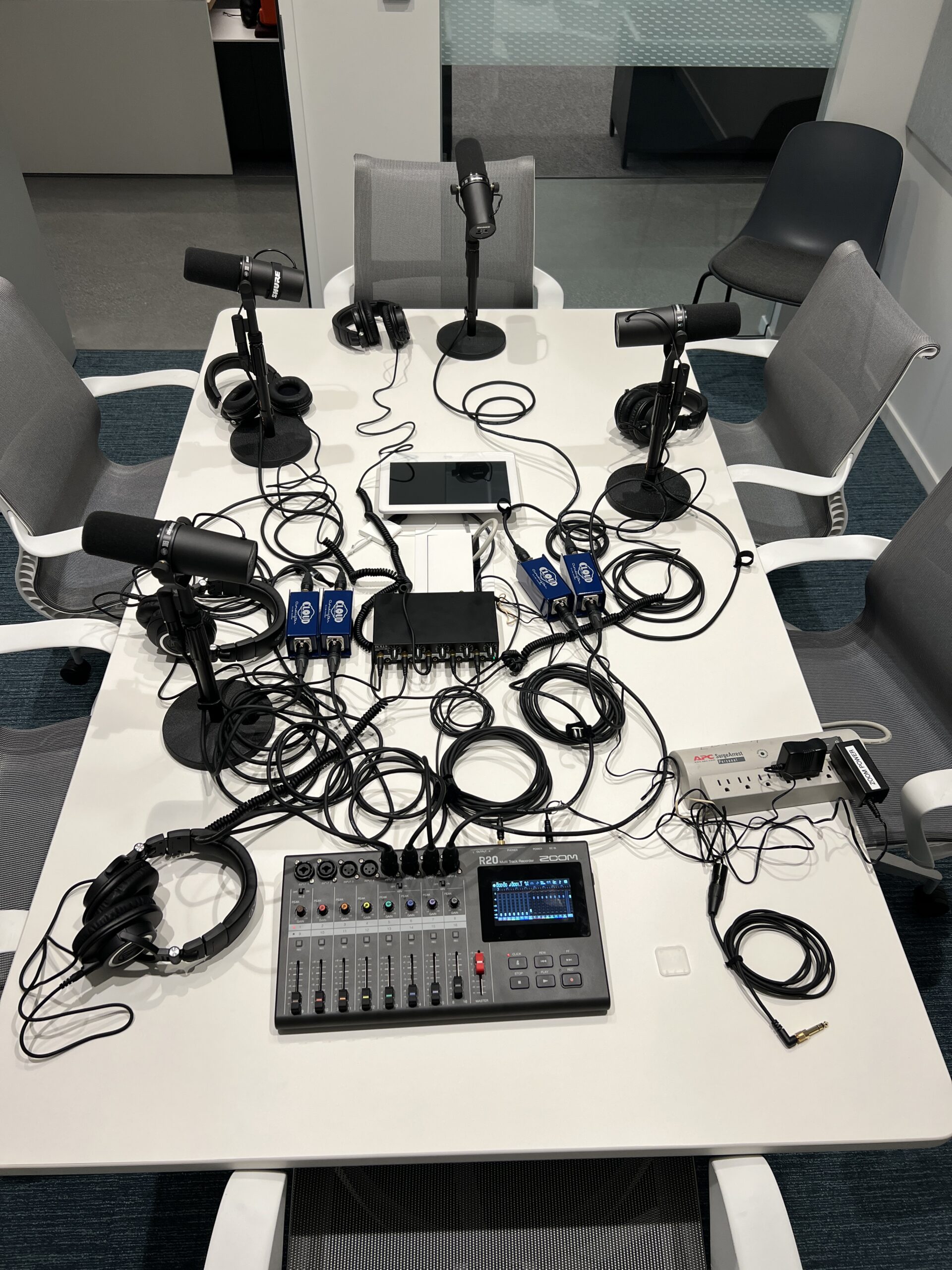
Meet your hosts:
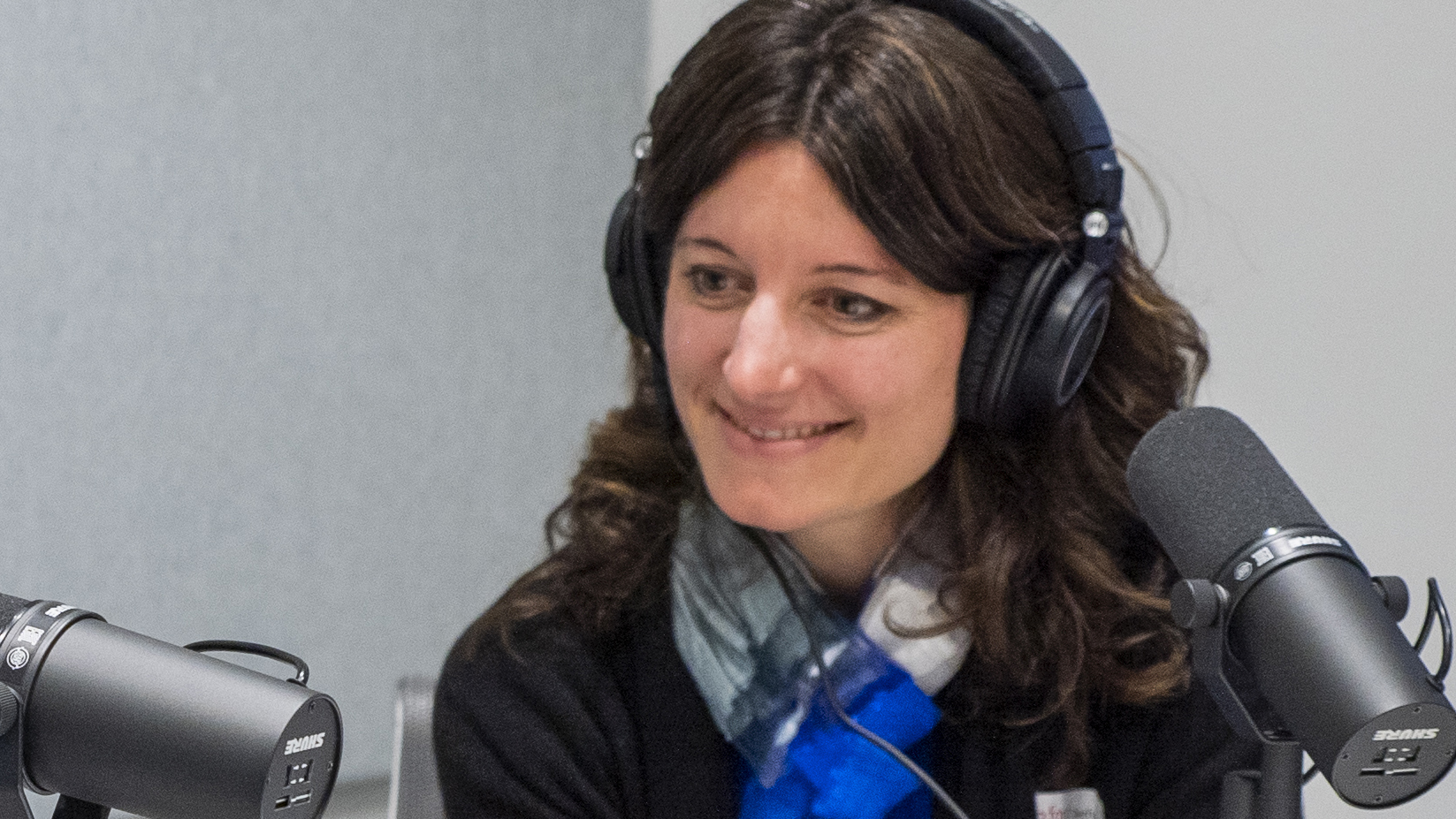
Stephanie Smith
Stephanie is a pediatric oncologist and clinical researcher with a focus on cancer survivorship at Stanford Medicine.
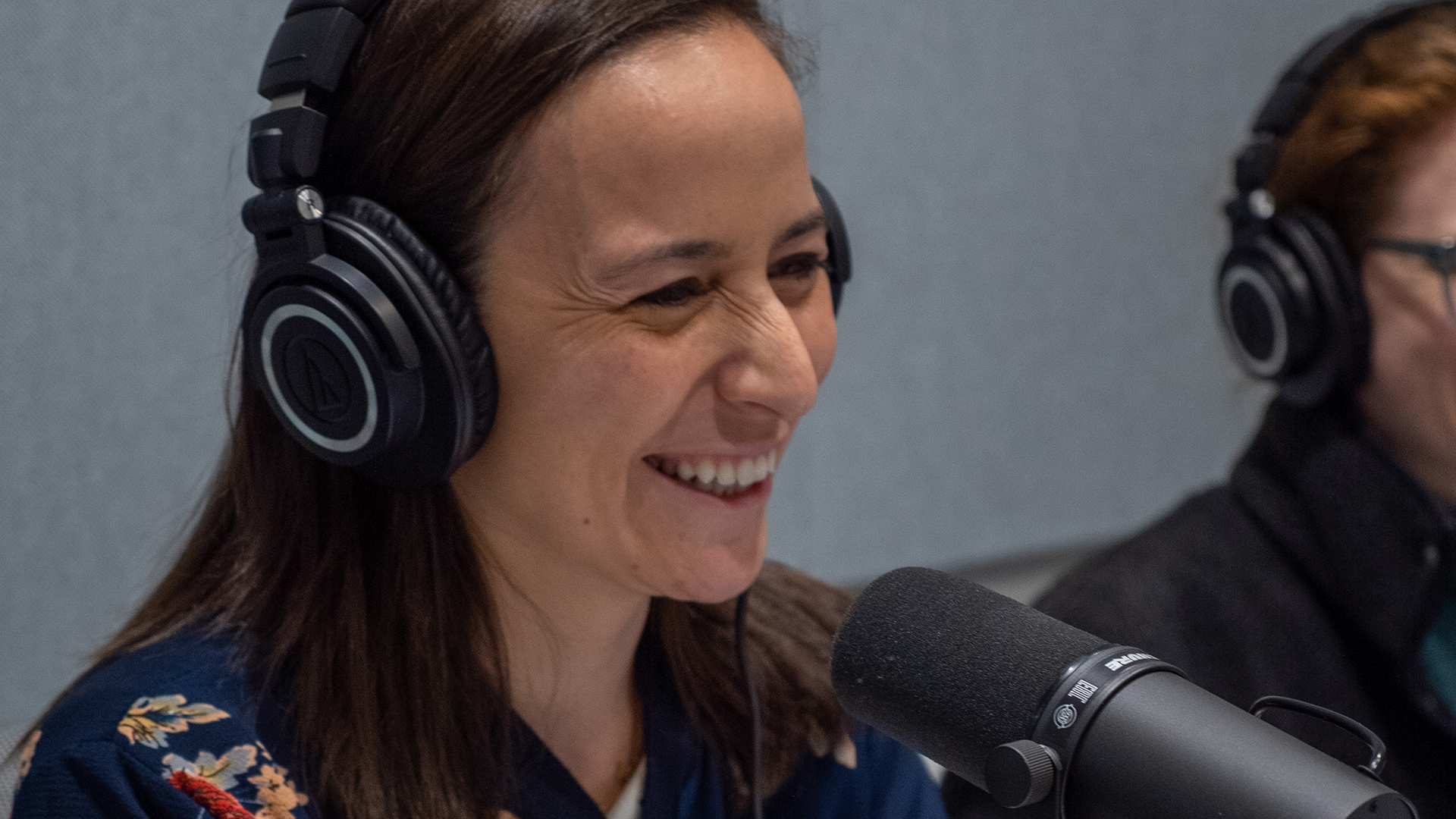
Natasha Steele
Natasha is a young adult cancer survivor, an internist and researcher, and an incoming faculty member at Stanford Medicine.
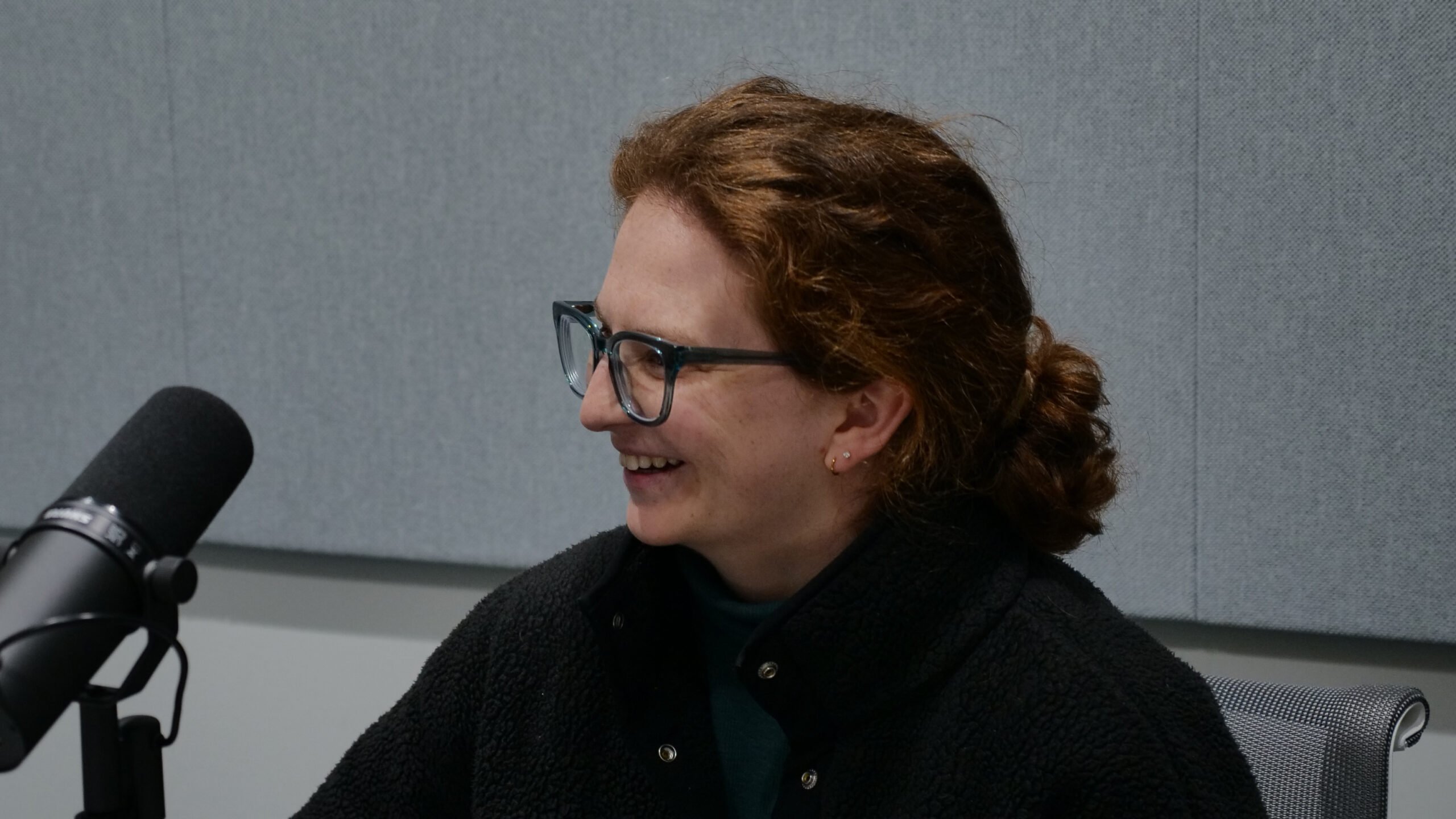
Elle Billman
Elle is a childhood cancer survivor and 2028 MD candidate at the Ichan Medical School, at Mt. Sinai, in New York.


